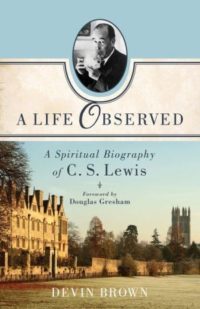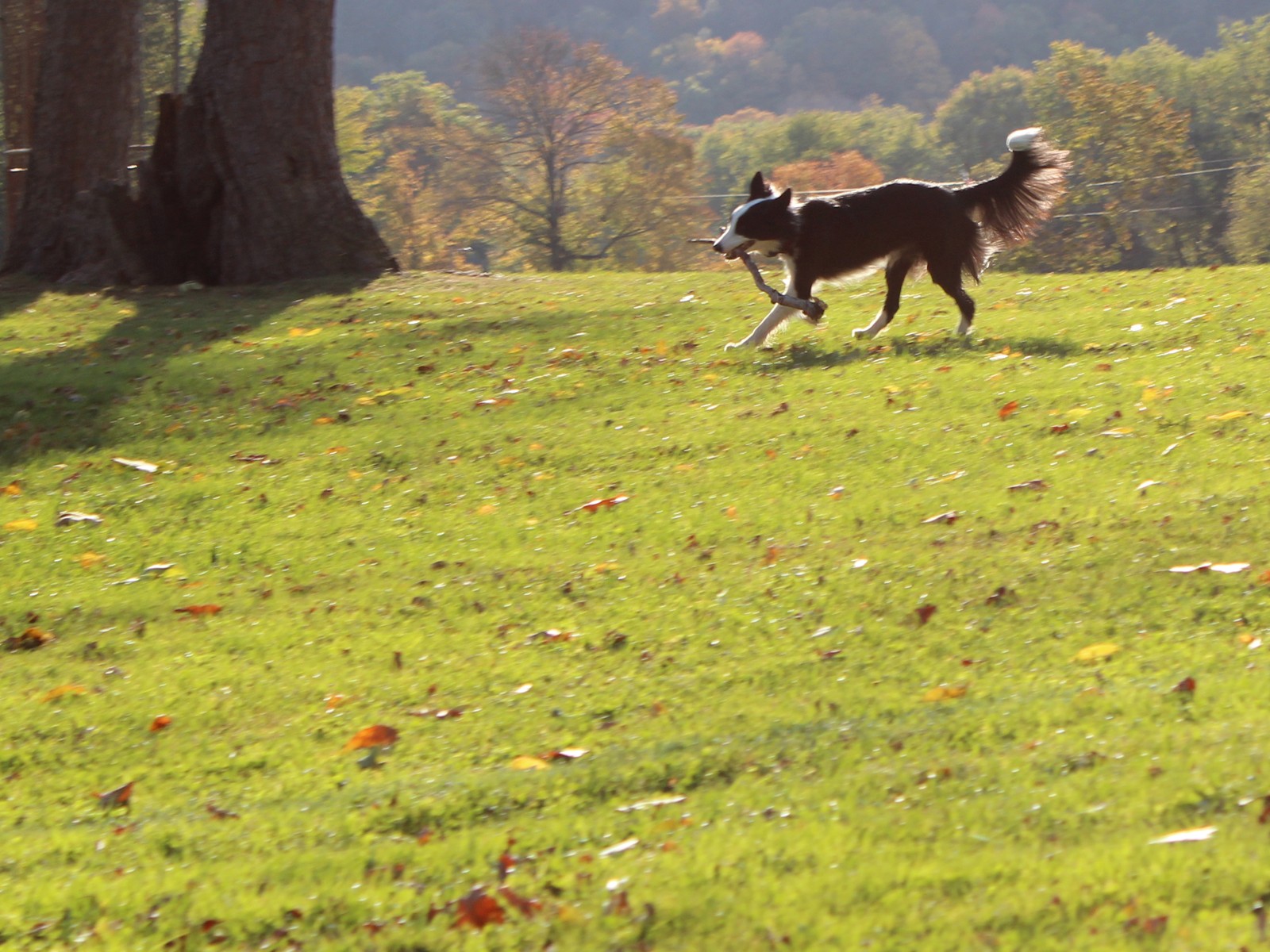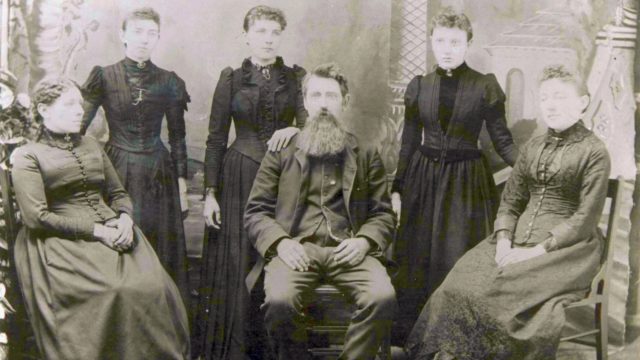A Life Observed
 In A Life Observed, author Devin Brown offers a biography of C.S. Lewis for a new audience: “a generation who may know him only through the Narnia films.” Though I don’t fit into this category, I’ve enjoyed this retracing of Lewis’s spiritual development for several reasons.
In A Life Observed, author Devin Brown offers a biography of C.S. Lewis for a new audience: “a generation who may know him only through the Narnia films.” Though I don’t fit into this category, I’ve enjoyed this retracing of Lewis’s spiritual development for several reasons.
First, Lewis is one of my spiritual mentors. His books have influenced my thinking and my faith in far reaching ways — quite possibly more than any other writer. His ways of imagining spiritual truths are often the first to come to mind, perhaps because they have moved me as much at the emotional and spiritual levels as at the intellectual level. I’ve read several biographies of him, and it’s always like returning for a visit with an old friend.
In the case of this one, it was like visiting two old friends. Its author was a colleague of mine during my first year as a full-time English teacher, and during that busy and eventful year when I taught new courses, revised a dissertation, and got married, Dr. Brown was always a source of encouragement and friendship. It was good to hear his voice in these pages.
One distinctive of this particular biography is its limited focus on Lewis’s spiritual development. Drawing primarily from Lewis’s autobiographical Surprised by Joy, and supplementing with letters, remembrances, and passages in Lewis’s other books that mirror or further develop some of its ideas, A Life Observed traces Lewis’s journey from unbelief to an astonishingly fruitful Christian life. Brown works to break down and make relatable some of the more abstruse allusions and experiences in Lewis’s book: what Lewis meant by the elusive “Joy” that drew him, ultimately, toward God; some of the esthetic “triggers” of this longing in Lewis; and even the sources for chapter epigraphs. There are still aspects of Lewis’s experience that escape me. But though I don’t react to the “idea of autumn” in Squirrel Nutkin, the “holiness” of Phantastes, or the “idea of Northernness” the way Lewis did, I still liked revisiting these touchstones of his journey. One of the marks of legitimacy in anyone’s spiritual testimony is its personalness — the experiences that move us the most may not be ones that touch others at all. Yet God knows these secret springs within us, and knows how to ripple those waters — a further evidence of his reality, and of the kind of intimate relationship he wants to have with each of us.
I really liked the ways Brown brought scenes from the Narnia stories into his discussion of these movements in Lewis’s deeper life. It gives us a picture of a writer working out his ideas through different forms and over long periods of time. I found myself pleased many times to be reminded of a favorite scene in Narnia as it was set beside one of the themes Lewis was developing in other ways in his own life.
At several points, this biography consciously defers to Lewis’s authority in his interpretation of his own life. It may seem odd that this would be mentioned as noteworthy, but it’s true that biographers often allow their own assumptions and skepticism to override their subject. If this bothers you, you will probably appreciate passages like this one. It appears after noting the contrast between Lewis’s comments that he learned the doctrines of Christianity in his time at Wynyard, and Michael White’s assertion that the sermons there were “largely meaningless”:
There is a kind of biography that looks at what Lewis tells us in his autobiography and, following the biographer’s own set of presuppositions, claims to understand Lewis’s life in ways that Lewis himself could not.
This is not that kind of biography.
If you’re looking for exhaustive detail about Lewis’s life, or speculation about some of the more mysterious areas and relationships, this book doesn’t go into those things (though you’ll glean some other titles Brown recommends). But if you seek an introduction to the man behind Narnia, or a return to some familiar facts from a refreshing perspective, A Life Observed offers a satisfying discussion of the process of personal transformation that gave Lewis such a compassionate and meaningful understanding of what it means to be a Christian.
Here is a link to other posts about Lewis on this blog, including reviews of several other biographies.



2 Comments
Barbara H.
A biography I read a year or two ago about Lewis did exactly that – allowing his own assumptions and skepticism to override his subject. – and it was SO maddening. I’m glad this author doesn’t do that.
Janet
Yes, I remember your review and thought of you, Barbara!